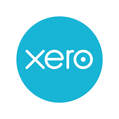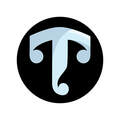E-Invoicing Protects You Against Invoice Fraud
Is your business using e-invoicing? It’s a fantastic way to protect yourself and your customers from invoice scams, and it can help you get paid faster. E-invoices replace emailed PDF invoices or links to online invoices. Instead, e-invoices are delivered securely to your clients, even across different accounting systems.
Preventing invoice fraud
Invoice scams are surprisingly common in New Zealand, and can be quite sophisticated. For example, with intercepted invoices everything looks exactly right, but the bank account number has been altered. When it happens to you, your client thinks they’ve paid you, but the money has actually gone to a scammer. Notifications from suppliers that their bank account number has changed – but it’s not actually your supplier, it’s fake, and your money is going to a scammer. In the event of an invoice scam, it can be very difficult to get your money back.
E-invoicing prevents these types of scams because the invoices travel directly from one accounting or payment system to another. By directly connecting suppliers with their clients, there’s no opportunity for scammers to intercept the invoices.
Government-backed e-invoicing framework
In 2019, the governments of New Zealand and Australia set up a framework for e-invoicing in both countries, designed to make it easier to trade across the Tasman. The system uses a New Zealand Business Number (NZBN) as a global ID for every business, and has been adopted by software providers including Xero. If your business uses a platform like Xero, you can e-invoice your customers or receive e-invoices from suppliers even if they don’t use the same platform.
Learn more about e-invoicing here
Start sending and receiving e-invoices
We can help you set up your accounting software to send and receive e-invoices immediately. You can learn how to set up e-invoicing in Xero at this link, or just get in touch and we can help. You can also use e-invoicing if you don’t use an online accounting platform with one of the free e-invoicing enabled software providers.
It only takes a little bit of time to learn how to use e-invoicing, and once you have the hang of it you’re protected from invoice fraud – so it’s well worth the effort!
Preventing invoice fraud
Invoice scams are surprisingly common in New Zealand, and can be quite sophisticated. For example, with intercepted invoices everything looks exactly right, but the bank account number has been altered. When it happens to you, your client thinks they’ve paid you, but the money has actually gone to a scammer. Notifications from suppliers that their bank account number has changed – but it’s not actually your supplier, it’s fake, and your money is going to a scammer. In the event of an invoice scam, it can be very difficult to get your money back.
E-invoicing prevents these types of scams because the invoices travel directly from one accounting or payment system to another. By directly connecting suppliers with their clients, there’s no opportunity for scammers to intercept the invoices.
Government-backed e-invoicing framework
In 2019, the governments of New Zealand and Australia set up a framework for e-invoicing in both countries, designed to make it easier to trade across the Tasman. The system uses a New Zealand Business Number (NZBN) as a global ID for every business, and has been adopted by software providers including Xero. If your business uses a platform like Xero, you can e-invoice your customers or receive e-invoices from suppliers even if they don’t use the same platform.
Learn more about e-invoicing here
Start sending and receiving e-invoices
We can help you set up your accounting software to send and receive e-invoices immediately. You can learn how to set up e-invoicing in Xero at this link, or just get in touch and we can help. You can also use e-invoicing if you don’t use an online accounting platform with one of the free e-invoicing enabled software providers.
It only takes a little bit of time to learn how to use e-invoicing, and once you have the hang of it you’re protected from invoice fraud – so it’s well worth the effort!
Other Bulletin Articles



